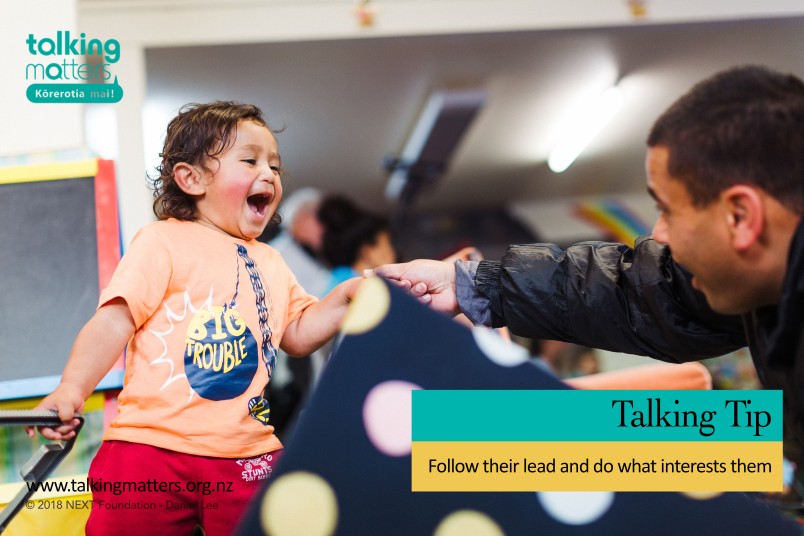Talking Matters has a vision for all children in Aotearoa to thrive as thinkers, talkers and readers. “Babies thrive in a rich language environment, in the language(s) of their whānau, their heritage, and their home,” says Talking Matters Campaign Director, Alison Sutton.
Talk is foundational for emotional and social wellbeing as well as for learning, and it's the back and forth, responsive communication that sets them up for success in education and in life. Interaction and talk help shape a child’s brain and influence their capabilities on every level, throughout their lives.
“We know that babies that start ahead, stay ahead and, conversely, the ones who start behind, will struggle to catch up,” says Alison.
A key part of the Talking Matters campaign is raising awareness. “We want everyone to know how important it is to talk to babies and under 3s. At present, most early language initiatives focus on ages 3-5 and on school readiness and reading. Early, responsive talk for ages 0-3 is the missing piece.”
Talking Matters collaborates with communities to spread its messages and strategies 'whānau to whānau', and 'school to school'. The campaign partners with organisations and early education services to co-design and deliver intensive home and ECE-based programmes powered by ‘talk pedometer’ technology. The data and research collated through this work is building a solid evidence base for the importance of early oral language in child development and whānau wellbeing.
An intensive programme in Tāmaki, Auckland, enlists parent coaches to work one-on-one with families in their local community to support them in talking more and talking differently with babies and toddlers.
One of these parent coaches is Ariana Kahui, who herself had been persuaded by a friend to enrol in the second iteration of the programme with her toddler Waiaria. Ariana was impressed by the impact on Waiaria’s language skills - “I definitely found her vocab got pretty extensive,” she explains. But it was the effect on whānau wellbeing that really struck her. “I think it’s just brought us all closer together, really.”
Ariana was inspired to train as a coach and one of her first families was her own brother and sister-in-law and their one-year-old. Ariana’s mum, Tui, has followed the progress of her two granddaughters with growing enthusiasm. She wasn’t sure what all the fuss was, at first, but is now a convert. “I’ve been through the programme two times now and I’ve seen for myself what it’s done for the kids,” Tui says.
Talking Matters is led by COMET Auckland, an independent education trust linked to Auckland Council. Funding from the NEXT Foundation has enabled COMET to take the campaign nationwide. After a learning and scoping period, Talking Matters is building partnerships with a number of Māori health, education and social service providers; and developing a Pasifika strategy.
“We want to see early talk at the heart of policy and practice for everyone - for government, for educators, for service providers, and for parents and families,” says Alison Sutton. “We know the thing that makes the biggest difference is back-and-forth talk. When you notice what baby is doing, or what baby is interested in, and you wait for baby to respond, that’s what literally sparks their brain, and builds their neural-pathways,” she adds. “And the beauty of it is that anyone and everyone can do it, and do it for free, with the knowledge, some support and a few key techniques.”
Find out more about Talking Matters
